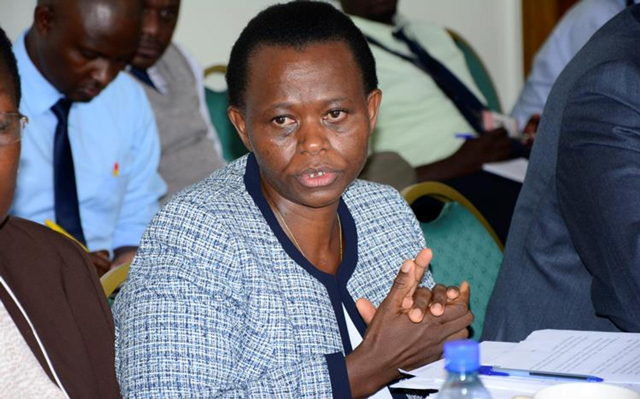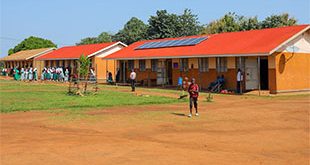
Kampala, Uganda | THE INDEPENDENT | Parliament’s Budget Committee has today questioned State House’s competence to supervise scientists spearheading the production of an anti-tick vaccine which has so far cost the tax payer 2.9 billion Shillings.
This follows a supplementary budget request by State House of 2.27 billion Shillings towards the presidential initiative on the anti-tick vaccine production which process started in 2017.
According to a document presented to the Committee, the mission of the initiative is to develop a vaccine using proteins identified from local ticks that would be used as part of the package in the control of ticks and tick-borne diseases, through vaccination.
The anti-tick vaccine is expected to reduce the burden of ticks to improve and enhance the health and well-being of livestock in Uganda.
Now in the team led by the Minister of State for Planning David Bahati, a Senior Principal Economist in State House Immaculate Namala was tasked by the Budget Committee Vice Chairperson Patrick Isiagi to explain their competence to supervise scientists and ensure value for money in regard to the tick vaccine development.
The vaccine production is spearheaded by a total of 12 scientists at Makerere University College of Veterinary Medicine, Animal Resources and Biosecurity (CoVAB) while the funds are channeled through State House.
“Tell us the relationship between State House and Makerere University College of Veterinary Medicine because our worry is money can be released to State House and doesn’t reach the scientists and yet the idea of scientists facilitates to do research is very paramount,” said Budget Committee Chairperson Patrick Isiagi.
Isiagi and West Budama North MP Okoth Othieno also questioned the competence of State House to supervise scientists.
Minister David Bahati explained that the money is channeled through State House since it was an initiative of the President and that Cabinet resolved that the best Vote to handle the money was State House.
Immaculate Namala, the Senior Principal Economist in State House told the committee that Finance Ministry provided an initial 1.9 billion Shillings for the development of the anti-tick vaccine and that in the current financial year 2020/2021 only 1 billion Shillings was provided out of the required 3.27 billion.
She says that the anti-tick vaccine production team receives all the funds and that they now require more funding totaling 2.27 billion to enable them finalize the production process and get the vaccine on the market.
Namala also told the Committee that State House has a technical team which supervises the scientists. This was after MP Isiagi demanded to know whether State House has a technical team to supervise the scientists.
The lead investigator on the vaccine production team, Dr. Margaret Saimo-Kahwa, a Senior Lecturer at Makerere University College of Veterinary Medicine said that they have reached a stage where they would like to commercialize the vaccine product which they have been developing.
She however said that the roll-out of the product is on hold pending satisfactory regulatory guidelines from the National Drug Authority (NDA), one of which is to conduct a clinical trial for the vaccine.
Dr. Saimo-Kahwa said that this is one of the reasons why they need money so that the clinical trial is carried out. In regard to production of a commercial anti-tick vaccine, she said that they have signed a Memorandum of Understanding with ALFASAN Uganda Limited- a pharmaceutical company which is a Good Manufacturing Practice (GMP) certified company for production of veterinary biologicals.
Peregrine Sebulime, also a Scientist Makerere University College of Veterinary Medicine said that the clinical trials are scheduled to be carried out on a restricted farm with 100 cattle at Ngoma. He said that this trial will last 6 months and thereafter commercial production starts.
Part of the 2.27 billion budget required by scientists will go to the clinical trial infrastructure development (132.7 million), fencing, water system and pasture paddock development (40 million), purchase of raw material for vaccine production (124.3 million), purchase of machinery to package vaccine (189.9 million), NDA fees for monitoring vaccine production and field trials (12 million), patenting of the vaccine (15 million), vehicle purchase (150 million) and others.
The scientists say that they are able to produce doses to cover 320,000 cattle per year.
A 2019/2020 financial year NDA report indicated that the country was facing a challenge of ticks not responding to drugs aimed at killing them since they had developed super resistance to almost all the available 21 acaricides.
Ticks cause diseases that kill cattle, reduce milk production and growth of animals.
********
URN
 The Independent Uganda: You get the Truth we Pay the Price
The Independent Uganda: You get the Truth we Pay the Price



